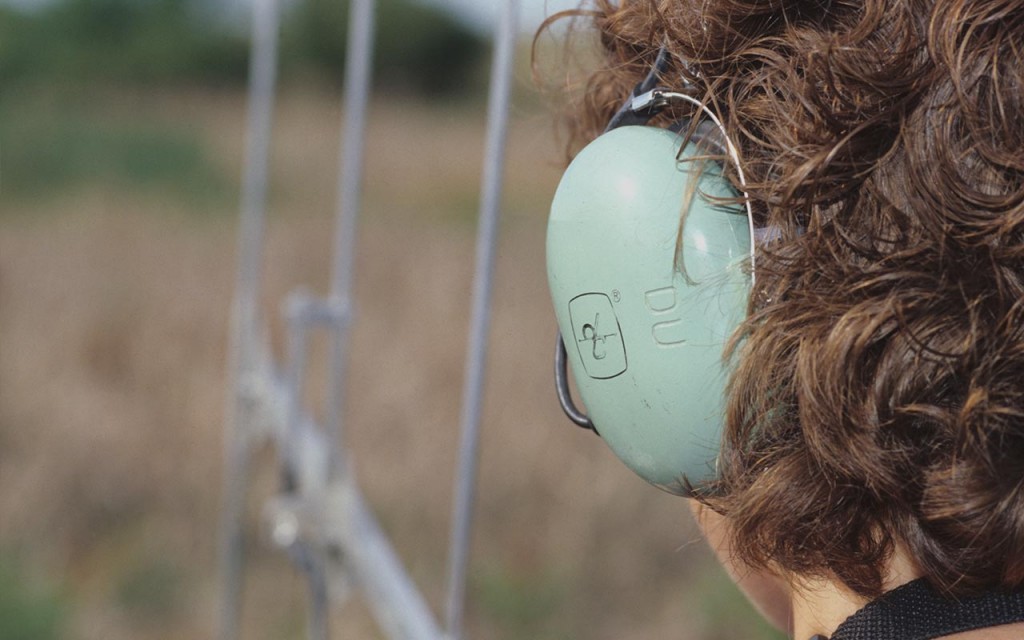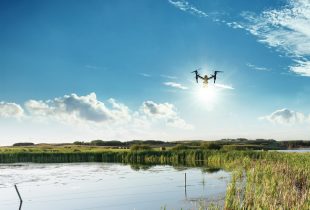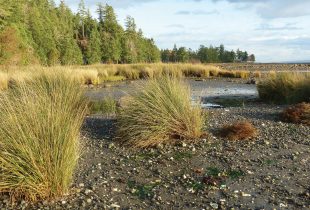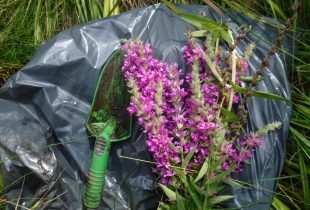How our work impacts conservation across Canada.
Where we’re working on the ground from coast to coast.
We need your help to protect our water, wildlife, and wetlands. Here’s how you can make an impact.
Get Involved
Science
The view from Stuart Slattery’s helicopter seat is impressive. Flying high above the boreal forest, the ground below is covered with trees and expansive lakes.
From his bird’s eye view, Slattery and his research crew count waterfowl. They contrast bird numbers in pristine boreal landscapes to numbers in landscapes fragmented by human activity. They also record water levels, plant cover and other aspects of the wetlands below.
By putting all these pieces together, they’re learning how changes in the boreal forest affect waterfowl populations. The results will help determine how industry and wildlife can co-exist.
This is just one example of how DUC’s research arm, the Institute for Wetland and Waterfowl Research (IWWR), discovers new ways of conserving natural areas in Canada.
These discoveries guide how we conserve land and water. DUC’s conservation research is visionary. Our solutions are practical. The result is conservation success you can see on the ground, on the water and in the skies.

How our science makes conservation possible
Climate change. Flooding. Algae blooms. Invasive species. The list of concerns about our environment is growing. These issues affect our economy, our lifestyle and our future. That’s why all of DUC’s conservation work is based on sound science and sustainable solutions.
Understanding our changing environment
Urban centres are growing. Industry is expanding. Agriculture is adapting to meet growing demands for food and fibre. These changes are impacting wetlands. That’s why we constantly plan, track, evaluate and adapt our conservation programs based on findings from studies that examine our changing environment.
Informing public policy
Wetlands are critical ecosystems. Waterfowl and wildlife depend on them to survive. But more research is needed to understand how wetland conservation contributes to people’s lives. DUC is gathering this scientific information to promote the creation of effective wetland policies. We do this by measuring the ecological value wetlands provide to society, like their ability to prevent floods and droughts, mitigate climate change and remove pollutants from water.
Species of special concern
Scaup, northern pintails, wigeon and sea ducks are species that warrant attention. Populations are well below goals, as their habitat is vulnerable. Identified as “species of special concern,” these and other wetland-dependent plants and animals require keen focus and conservation attention. DUC is discovering what is limiting populations by conducting research and providing research grants to students and universities. With more information to work with, we can deliver habitat programs that support these species’ life cycles.
Expanding social research
Conservation is governed by beliefs. It’s expressed in behaviours and shaped by economics. understanding these factors is critical. They contain answers as to why landowners, industry, government and the general public choose to make conservation part of their lives. DUC is expanding our research in social science to find effective ways of engaging people with conservation practices and policies.
Education and training
Young scientists are the future. Exposing bright people to DUC’s work is an effective way to further our research efforts while helping launch their careers in wetland and waterfowl conservation. DUC nurtures the next generation of conservation scientists through funded fellowships that support graduate research. We also employ students to help deliver DUC research projects.
For information on our scientists and their research, visit our dedicated IWWR site.



